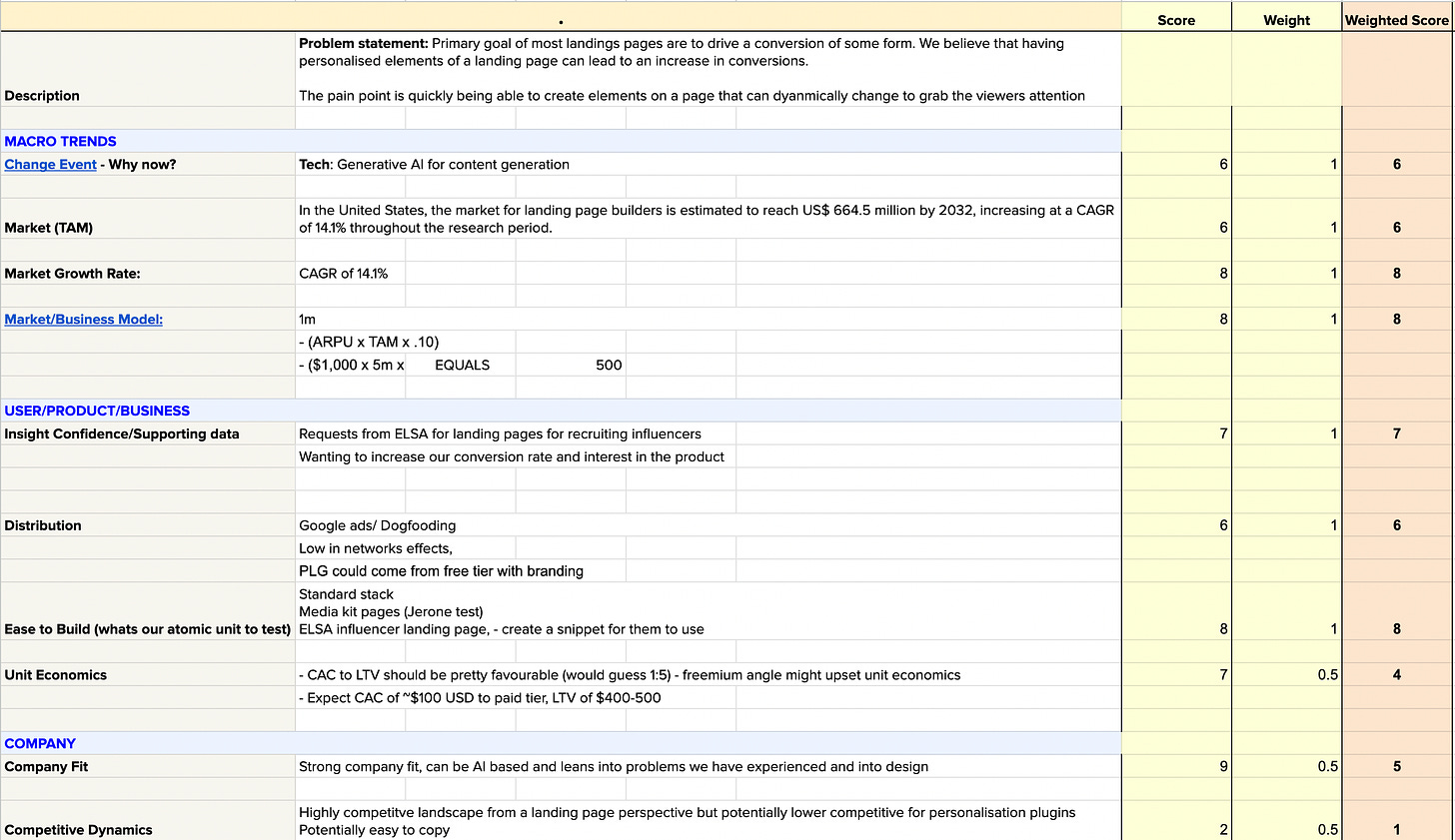Shutting Down Lasso - Part 1: The Founding Team
A guide to forming, storming and norming for co-founder fit
The last couple of months have been a trip. The highs were super high and the lows felt, well even lower. However, I am at a checkpoint in the journey where I can come up for air and take a pause to see what direction to go in next. These next few posts will be about how I got here but with some minor updates on what is next.
Let's kick things off by highlighting the milestones we reached from bootstrapping over the last six months.
Onboarded a cohort of design partners
Built and launched an MVP
Formally founded the company
Acquired our first enterprise clients and successfully navigated that sales process for the first time
Established a data partnership with YouTube
Processing over 1 million creator profiles through our platform every week
Bootstrapped to breakeven
However, despite these notable achievements, our journey took an unexpected turn, leading us to make a challenging decision: to pivot our direction and pursue separate paths.
The next series of posts will be focused on breaking down how we got here and sharing the most important learnings from the journey for the following topics.
Team
Problem
Market
Pricing
Distribution
Funding
Part 1 - The Founding Team
Back in October, I partnered up with a friend who I met through mutual connections. We stayed in regular contact after meeting as we were both focused on building something new and quickly became good friends through that shared interest.
When Lasso moved from trying to sell to creators to selling to SaaS marketing teams it created an opening for Ben and I to partner up. As Ben was living in Lisbon, Portugal I decided to move there temporarily so we could work together. Being in the same room in the early stages made a material difference to the relationship which ultimately led me to decide to move to Lisbon fully.
Having a co-founder made all the difference during both the hardest and greatest times.
Ben and I made a great team, my product background with his engineering and AI experience made building software easy. However, Ben and I ultimately decided to part ways when making this pivot. There are many ‘what ifs’ you ask yourself when things like this occur but I believe the reason for this split was down to misalignment. We wanted the same thing but we weren’t working on a problem that allowed us to be our best.
Where I failed the team was that I prioritized trying to make this idea work more than the team. Ben was committed and trusted my decisions but I ignored that the situation I brought us into was bringing neither of us joy.
The situation I refer to here is one where one of the most dedicated and talented engineers I know was building and working every waking second they had but in a space that had no future for us. I took too long to get us to that point of realization which ultimately I believe is what burnt up the trust.
Reflecting on it now I believe subconsciously I ignored signals because I had nothing else for us to move to if this idea didn’t work out and I desperately didn’t want to lose the team. Ironically this decision is most likely what made me lose the team.
My takeaways
Focus on the team above everything else
Next time I will try to create a form of unbiased pulse checking. This would be where we decide ahead of time on what signals indicate that we feel fulfillment in the work we are doing.
Find relationships where 1 + 1 = 3 and not 2
To have built enough momentum that everyone can work at a high velocity.
When you find great people always make sure you do everything you can to allow them to achieve their best in the capacity that makes the most sense for them, not for you.
For example, Adam who I partnered up with to create products for creators loved working together but unfortunately working full-time on the project was not an option for him. However he continued to work with Ben, and me in a part-time capacity. So sometimes you have to stop trying to make fetch happen and let the pieces fall where they may.
Where to find a co-founder
Finding a co-founder is arguably harder than finding a life partner. Mainly because there are a lot more people looking to find life partners than people looking to take large financial risks to build a company. Below are the best places I found to discover those people.
Ask friends and old colleagues if they know anyone that is the type to want to work on a startup
Startup-related events and meetups
Assessing fit
Keep it light and organic to start
At the start, my recommendation is to keep the conversation as organic as possible. Have your initial intro chat and then ask about the areas you are most interested in. My recommendation is to move to an informal way of communicating with each other and begin to ask questions about the ideas you are working on. If the conversation is going well make some intentional commitments like regular check-in calls or ideation sessions.
Move to understand values and aspirations
If your conversations are flowing towards working on a project then it’s worth taking the time to understand how each of you is thinking about the future. This questionnaire (+ Google Doc version) is probably the most helpful tool for getting started. It’s not as much about what you align on but finding where you don’t. Look for the outliers and discuss them with each other. If you can easily talk about opposing views that is a positive signal to pay attention to.
Finding an idea to work on together
Sometimes one or both of you already have an idea, but if not, here is a template we created that you can use for ideating together. We created this template at the point of assessing pivots, but you can also use it to stress test the existing idea.
The template is broken into three steps
Capturing what you know
Scoring the ideas against passion, distribution, and willingness to pay. (Feel free to add your values here)
The detailed business case. This sheet was created by Craig Watson from Soundwave.
Fostering the relationship
Below are three recommendations when it comes to making a co-founder relationship work.
If you are serious about the partnership, do whatever you can to spend as much in-person time together as possible.
If something doesn’t feel right then address it quickly. Set a time to talk about how you are feeling. Don’t end the conversation until you feel there is better alignment. Alignment is worth more in the long run than any short-term outputs/progress you might make by ignoring it.
Schedule weekly retros for the work and for how you are feeling in general.
A co-founder relationship is like a marriage, you have legal documents binding you together and your startup is your newborn child. The first step to making any relationship a success is to start by acknowledging just how much you don’t know about each other. The second is to focus on a process of active listening in every engagement. You need to see each other as your allies in the search for answers. If you find yourselves in disagreement, start with the assumption that you are wrong and they are right. We often spend most of our time trying to make sure we are heard but ironically that is what creates environments where we end up speaking past one another.
“A good partnership is not so much one between two healthy people (there aren’t many of these on the planet), it’s one between two demented people who have had the skill or luck to find a non-threatening accommodation between their relative insanities.” - Alain De Botton
I hope you enjoyed part 1. I will be sharing the mentioned topics over the coming weeks, but in the meantime, I am back on the road again exploring.
If you're interested in discussing new ideas, tackling problems, or exploring potential partnerships, please feel free to reach out. Happy to chat or connect you with other like-minded builders.




Too bad it didn't work out, but love reading your stuff, as always! Fascinated by the process.
Well done, Ian. It’s not an easy journey and facing the split head on takes a lot of courage. I enjoyed reading your reflection here and looking forward to learning more from you.